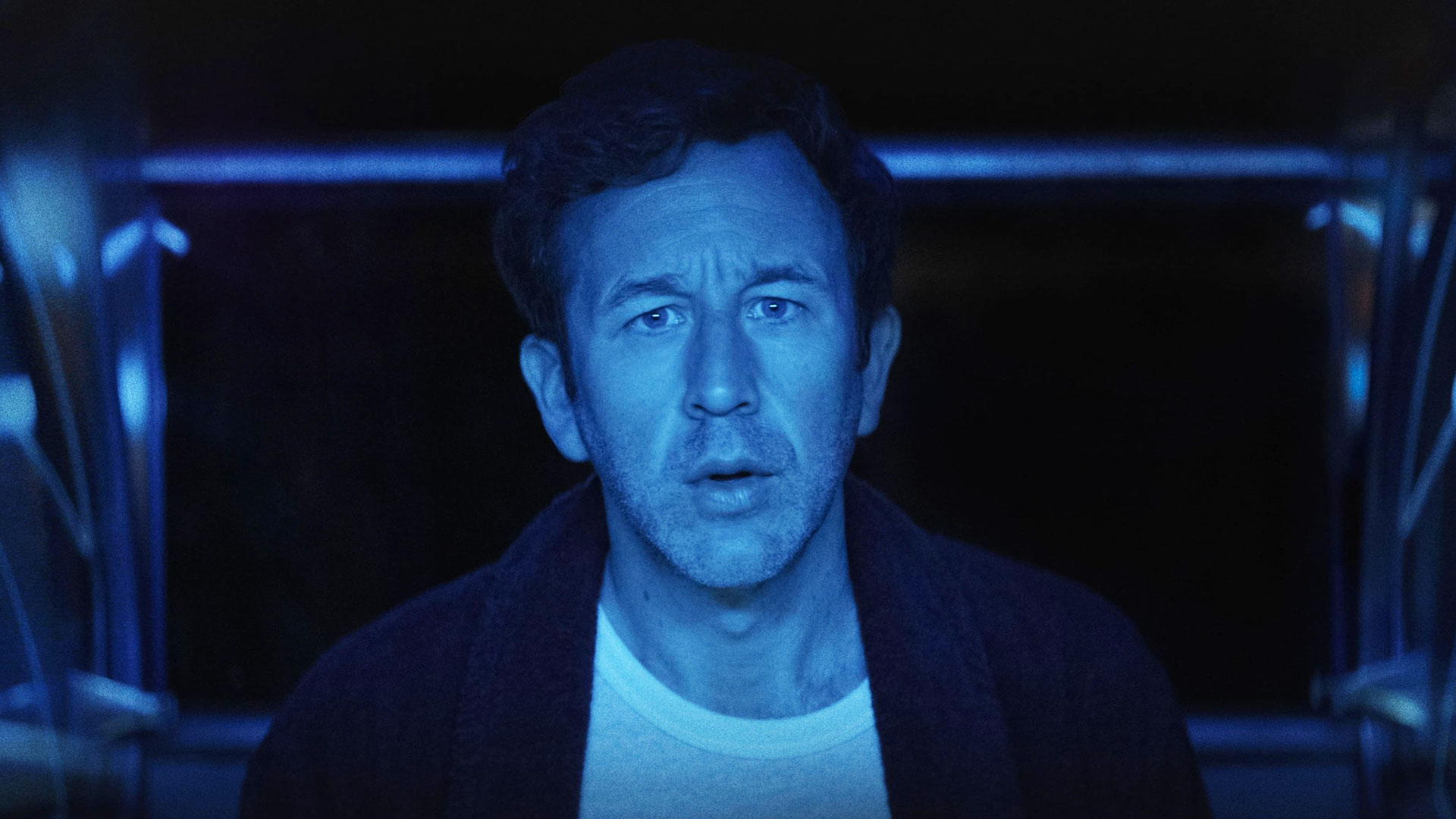Chris O’Dowd brings adorable lowkey charm to The Big Door Prize

Set in a small American town where a magical machine reveals people’s true potential, The Big Door Prize is amiable light entertainment boosted by an endearing Chris O’Dowd, writes Luke Buckmaster.
Chris O’Dowd is so damn likable: the kind of bloke you feel you could instantly open up to—or at the very least, ‘av a laugh and a pint with. The actor’s lowkey charm is as central to the appeal of his new show, The Big Door Prize, as its The Twilight Zone-lite premise, involving a machine that inexplicably appears in a small American town and claims to reveal a person’s true potential. O’Dowd’s protagonist Dusty—a family man and history teacher of modest ambition—stands before it during the show’s opening moments, illuminated in the machine’s electric blue light. “What are you waiting for?” asks the shopkeeper behind him.
The machine fulfills its purpose, producing a business card-sized printout summarising Dusty’s supposed potential. But before this is revealed director Anu Valia switches scenes: the old “create dramatic anticipation by cutting away” trick.
We learn the owner of the store housing the fortune-telling machine, which is called “Morpho”, doesn’t know how it got there: one day it seemed to just magically appear, like the plant summoned by a total eclipse of the sun in Little Shop of Horrors. And like that plant it’s good for business, the locals flocking to insert coins and discover its verdict on their lives. The local principal, Pat (Cocoa Brown), is surprisingly chuffed that her full potential is apparently to be a biker; perhaps she just wanted an excuse to buy a new pair of wheels. The priest, Father Reuben (Damon Gupton), is nervous; what if the machine predicts something unrelated to the cloth?
The first episode establishes Dusty’s pleasant life and Ben Stiller-ish demeanour: the mellow everyman with no particular hopes and dreams, who followed the template and did what society expected. Dusty has a beautiful wife, Cass (Gabrielle Dennis), who was his high school sweetheart and is the only woman he’s ever slept with, and a bright daughter, Trina (Djouliet Amara), recovering from the recent death of her boyfriend. Does Dusty have regrets? Misgivings? Latent desires? Does he dream of something more? Maybe or maybe not—but we do know the machine has upset the cosmic balance of his life, messing with the status quo and ushering in a period of instability for him and fellow residents of Deerfield.
I was reminded of a rather differently flavoured production: Richard Kelly’s 2009 thriller The Box, in which a married couple (Cameron Diaz and James Marsden) receive a wooden box with a large red button, accompanied by an odd spiel from a disfigured Frank Langela. Press the button, he says, and you’ll get a million bucks—but somebody you don’t know will die. Of course they press the button, but even if they didn’t, its presence would still have triggered irrevocable change, even if that change is just a possibility; the idea of a different future. The Morpho machine functions in a similar way, with an extra level of obliqueness, spitting out summaries vaguer than a fortune cookie. When Cass uses it she receives just the word “royalty,” which could be interpreted in various ways, presumably to be revealed before the season’s end (this review encompasses the first six episodes).
Adapted from M.O. Walsh’s novel of the same name, The Big Door Prize has a quaint old-timey charm: a little middle-of-the-road, a little ambling. Implicit throughout the show is the popular idea of small towns as places of refuge, where dreams are abandoned or paused and never pursued. The function of Morpho is to rouse small-towners from their slumber, feed them a gentler version of the red pill, get them thinking like big city folk. It’s a simple perspective for a slight, lightly entertaining show.
The series divides its episodes themed by character, each focusing to some extent on a different person. I say “to some extent” because Chris O’Dowd keeps popping up and wresting protagonist status. Despite the (slight) change in focus as it rolls along, he’s more or less the lead. Everybody knows, with O’Dowd, they’ve latched onto a good thing, and his charm never dissipates.


















